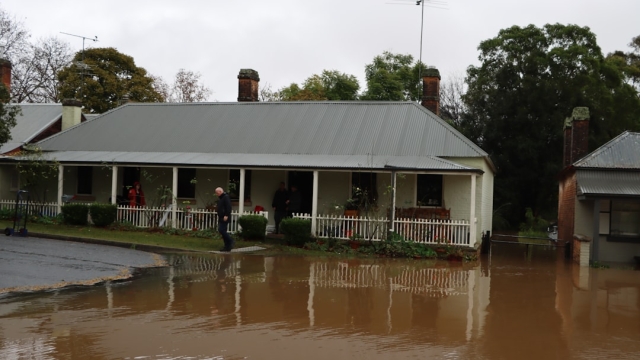Flood insurance is a crucial consideration for property owners, especially in regions prone to flooding, such as Colorado. Understanding the ins and outs of Flood Insurance can help homeowners and business owners safeguard their investments and ensure financial stability in the event of a disaster. In this article, we will explore the basics of flood insurance, the available options specifically for properties in Colorado, and how to obtain quotes to ensure you have the right coverage for your needs.
Understanding Flood Insurance Basics
Flood insurance is designed to protect property owners from financial losses related to flood damage. Unlike standard homeowners or business insurance policies, which typically do not cover flood-related incidents, flood insurance provides specialized coverage tailored to these specific risks. This type of insurance is essential for anyone living in flood-prone areas, as it can significantly mitigate the financial impact of flooding, whether from heavy rainfall, rapid snowmelt, or other water-related events.
Flood Insurance Options for Colorado Properties
In Colorado, property owners can choose from several flood insurance options. The two main categories are federal flood insurance and private flood insurance. Understanding these options will help you make an informed decision tailored to your specific situation.
Federal Flood Insurance
The National Flood Insurance Program (NFIP) offers federally-backed flood insurance policies. This program provides essential coverage for residential and commercial properties, making it a popular choice for those seeking security against flood risks. NFIP policies typically cover the structure of your home and its contents, but there are limits to the amount of coverage available. For homeowners, the maximum coverage for a dwelling is often capped, so it’s vital to assess whether this amount is sufficient for your needs.
Private Flood Insurance
Private flood insurance is another option available to Colorado property owners. These policies are offered by private insurance companies and can provide coverage beyond that of the NFIP. Private flood insurance can be more flexible in terms of coverage limits and may include additional features, such as replacement cost coverage and coverage for additional living expenses if your home becomes uninhabitable due to flooding. This option can be particularly appealing for those who feel that the NFIP limits do not adequately protect their property value.
How to Get Quotes for Flood Insurance in Colorado
Obtaining quotes for flood insurance is a straightforward process, but it requires some preparation. Here’s a step-by-step guide to help you navigate this process effectively:
Step 1: Gather Necessary Information
Before reaching out to insurance providers, collect essential information about your property. This includes:
- Your property’s location and flood zone designation
- The year your property was built
- The square footage of your home or building
- Any past flood claims or history of flooding in the area
Step 2: Research Insurance Providers
Look for reputable insurance providers that offer both federal and private flood insurance options. It’s wise to consult with insurance agents who specialize in flood insurance, particularly those familiar with Colorado’s unique landscape and flood risks.
Step 3: Request Quotes
Contact multiple insurance providers to request quotes. Provide them with the information you gathered in Step 1 to ensure that the quotes you receive are accurate and comparable. Be sure to ask about any discounts that may apply, as some providers offer reduced rates for properties with specific risk mitigation features.
Step 4: Compare Coverage and Costs
Once you have received quotes, compare the coverage options and costs carefully. Pay attention to coverage limits, deductibles, and any exclusions that may apply. It’s essential to choose a policy that not only fits your budget but also provides adequate protection for your property.
Common Questions and Best Practices
As you consider flood insurance, you may have questions about maintaining adequate coverage. Here are a few common inquiries:
- Do I need flood insurance if I am not in a high-risk area? Even properties outside high-risk zones can experience flooding. It is wise to consider flood insurance regardless of your location.
- How often should I review my flood insurance policy? Regularly reviewing your policy, especially after significant changes to your property or after major weather events, is essential to ensure adequate coverage.
- Can I obtain flood insurance for a condo? Yes, flood insurance is available for condominiums, and it’s important to understand both your individual unit’s coverage and the overall building’s insurance.
Maintaining adequate coverage through flood insurance is vital for protecting your investment. For condo owners in Colorado, understanding both the specific needs of your unit and the building as a whole is crucial. For more tailored information on condo insurance, check out resources that focus on specialized business insurance for Colorado properties.
By taking the time to understand flood insurance and exploring your options, you can make informed decisions to protect your property and financial future.


